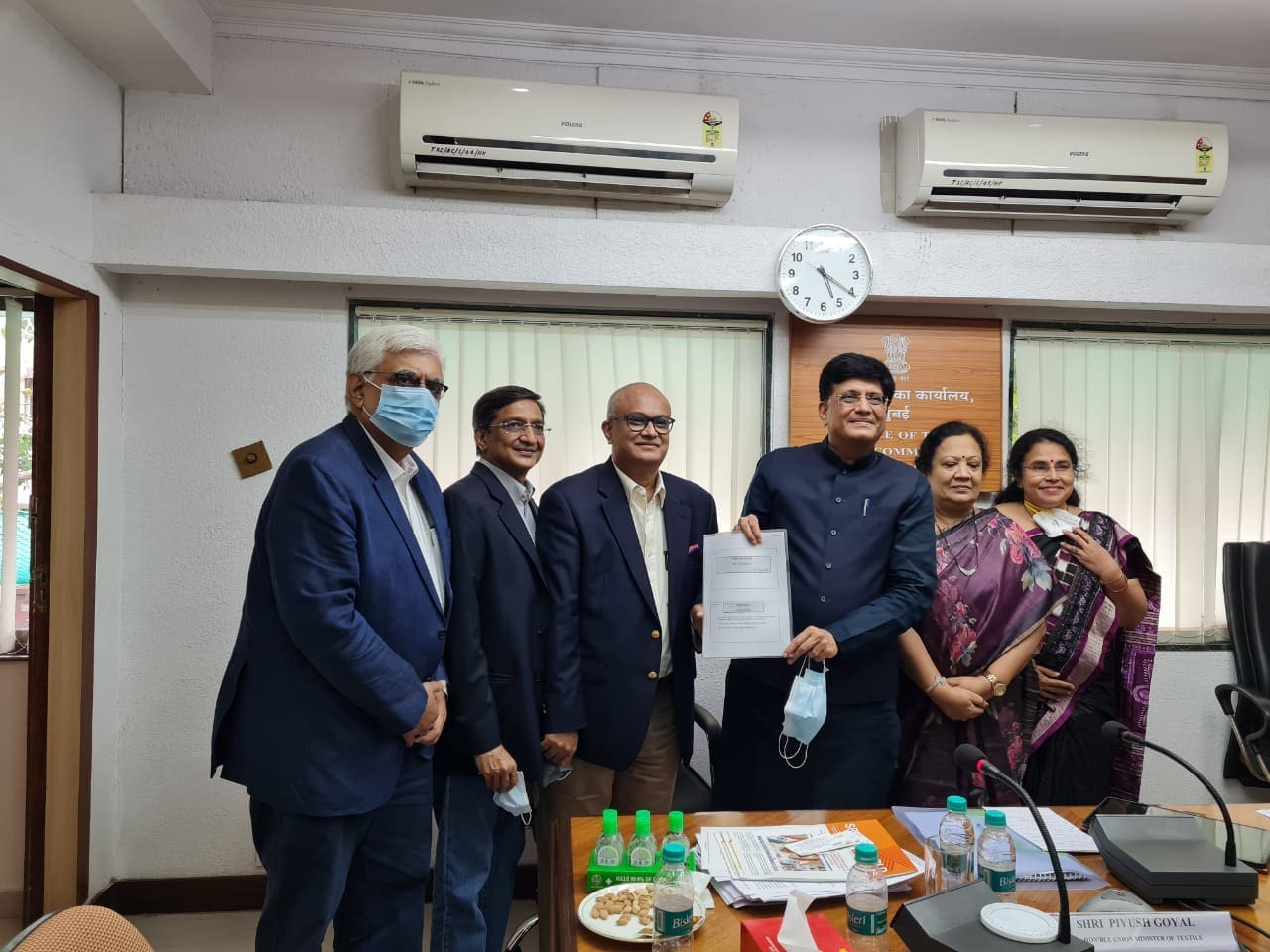MUMBAI,12th JULY 2021: Shri Manoj Patodia, Chairman, TEXPROCIL, along with Shri Sunil Patwari, Vice Chairman and Dr Siddhartha Rajagopal, Executive Director had an interactive meeting with the newly appointed Union Cabinet Minister of Textiles Shri Piyush Goyal and Smt Darshana Jardosh, Hon’ble Minister of State for Textiles on 10th July at Mumbai .
In the presentation to the Hon’ble Ministers, TEXPROCIL highlighted that the Cotton textile sector is one of the few sectors that had achieved a positive growth in 2020-21 despite the pandemic situation., said Shri Manoj Patodia , Chairman , TEXPROCIL .
Exports of Cotton textiles ( including raw cotton) during this period, pointed the Chairman , reached US$ 10723 million as against US$ 9799 million in 2019-20 registering a growth of 9.43% .
TEXPROCIL appealed to the Hon’ble Minister Shri Piyush Goyal to notify the RODTEP rates at the earliest and also to maintain the RoSCTL rates for Made-ups under the RODTEP scheme, stated Shri Patodia . Another request made to the Hon’ble Minister was to remove the custom duty on Cotton as the variety of extra long staple branded cotton and contamination free cotton which was mainly imported and not available as yet in India in sufficient commercial quantities. Chairman pointed out that it is important to have cotton at International prices to promote value added exports .
On the Indo-UK FTA, TEXPROCIL urged the Hon’ble Minister to include the textiles & clothing sector upfront in the “pre-negotiation scoping phase” or any envisaged ”early harvest “ program to overcome the disadvantage faced by the Indian exporters due to duty concessions already granted by UK to competing nations like Bangladesh, Pakistan, Vietnam, Turkey and Sri Lanka . Similarly he also requested that the Indo- EU FTA should be expedited which will help the Indian exporters to overcome the disadvantages of tariff preferences given to competing countries and create a level playing field .

